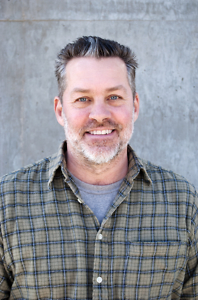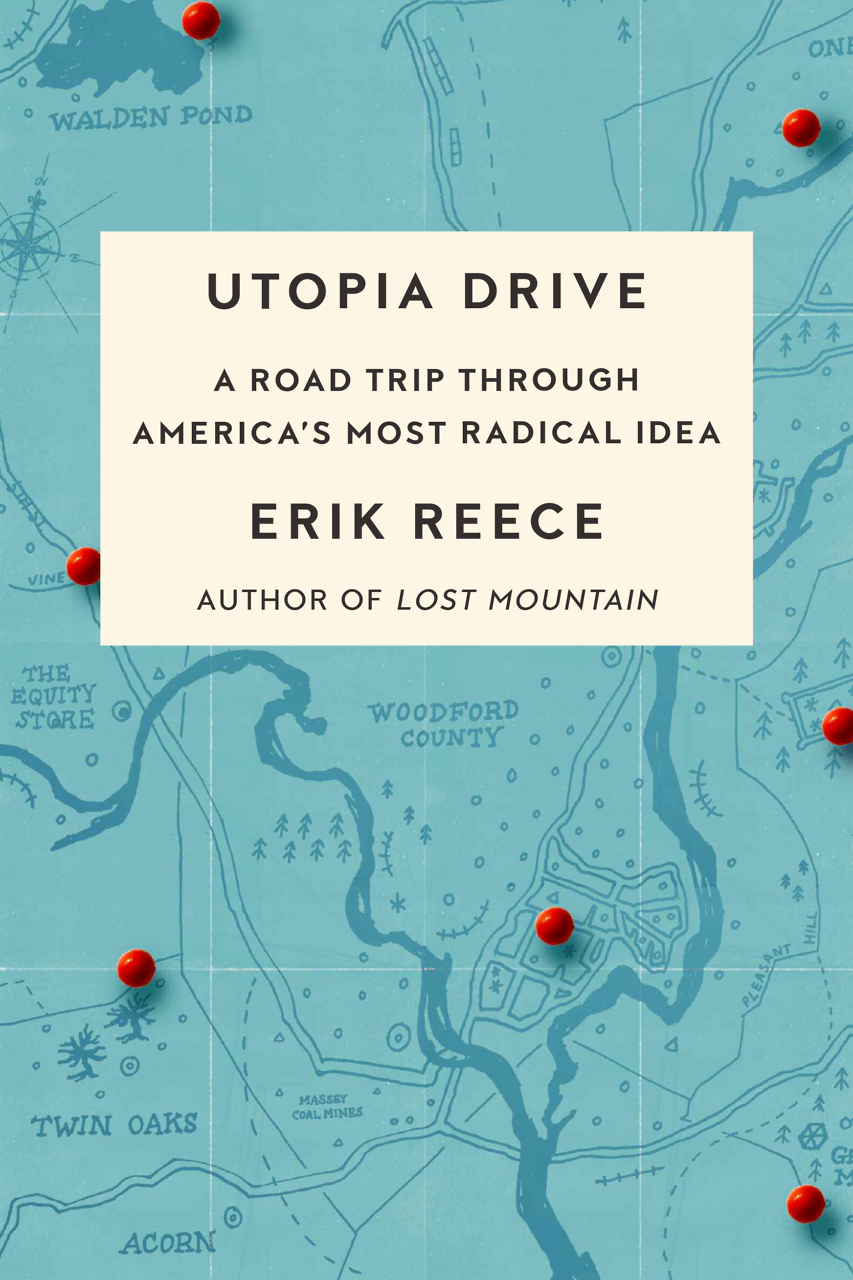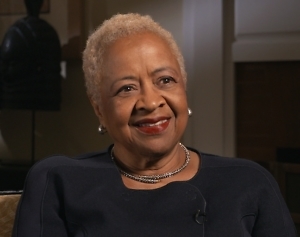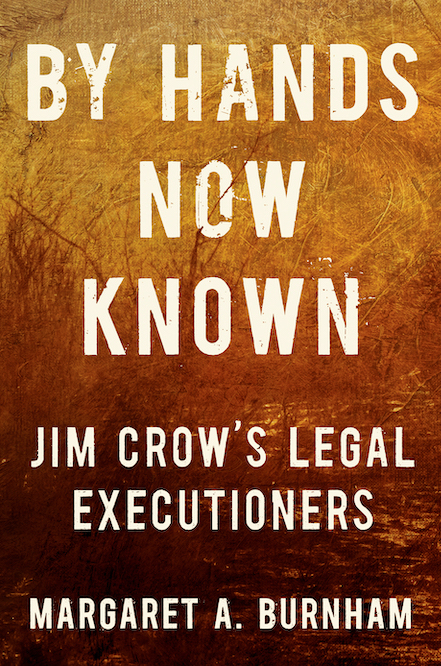A Recognition of the World’s Mystery
Dan Chaon talks with Chapter 16 about his unsettling new story collection, Stay Awake
Dan Chaon first made his name as a writer of short stories, with work appearing in The Best American Short Stories, Pushcart Prize, and The O. Henry Prize Stories. After publishing two highly acclaimed story collections (the second collection, Among the Missing, was a finalist for the National Book Award), Chaon went on to write two stunning novels: You Remind Me of Me and Await Your Reply. It might be tempting to see his latest offering, a short-story collection called Stay Awake, as a return to form, but the book is actually the author’s most visionary work to date.
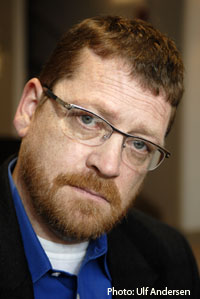 Each of Chaon’s successive projects has become increasingly creepy and idiosyncratic. Among the Missing co-opts the conventions of film noir and puts them to the writer’s own literary use, and Stay Awake does so with horror. The result is something deeply mysterious, almost metaphysical. These stories take place neither in our world nor another, though somehow in both at the same time, reminding us that such distinctions between waking and sleep, actual and imagined, realism and horror are comforting fictions in their own right. This is a disturbing, daring collection, a collection that deliberately plays with uncertainty. A reader can never quite figure out the right perspective, the right attitude, or just how close to stand.
Each of Chaon’s successive projects has become increasingly creepy and idiosyncratic. Among the Missing co-opts the conventions of film noir and puts them to the writer’s own literary use, and Stay Awake does so with horror. The result is something deeply mysterious, almost metaphysical. These stories take place neither in our world nor another, though somehow in both at the same time, reminding us that such distinctions between waking and sleep, actual and imagined, realism and horror are comforting fictions in their own right. This is a disturbing, daring collection, a collection that deliberately plays with uncertainty. A reader can never quite figure out the right perspective, the right attitude, or just how close to stand.
Prior to his forthcoming reading at Vanderbilt University in Nashville, Chaon recently answered questions from Chapter 16 via email:
Chapter 16: As I was reading “The Bees,” I kept thinking about Woody Allen’s film Crimes and Misdemeanors. Your main character has done some awful things that he has never quite taken responsibility for, and over the course of the story he faces reprisal for them. In Allen’s film, a character does something awful and gets away with it. By the end, he doesn’t seem particularly bothered by even his conscience. At the risk of reducing a story to a message, are these two stories indicative of differing worldviews?
Dan Chaon: This may be the only time I’ve ever been compared to Woody Allen! I’d say that we definitely have different worldviews—we almost live on different planets—but I’d also say that neither “The Bees” nor the Allen film seems to be promoting a specific message or moral. In “Crimes and Misdemeanors,” the murderer played by Martin Landau is ultimately without remorse, while the schlub played by Allen is wracked with guilt over much smaller “misdemeanors.” It’s ironic, but I think we’re supposed to see Landau’s character as a kind of monster. In “The Bees,” the punishment that is visited on Gene and his family for his crimes is so brutal that I don’t think most people would say that it was “deserved.”
Chapter 16: Internal and external realities seem to conspire in this collection: it can be hard to disentangle a character’s perception from his or her surroundings. In “Patrick Lane, Flabbergasted,” for instance, the city seems to be sliding into a gradual apocalypse, but we don’t know whether Brandon is just seeing it that way or whether there is some literal truth to the perception. Similarly, in “The Bees,” Gene’s abandoned son seems to emerge from nightmares into lived reality, but it might be only his own conscience creeping up on him. Yes, these are quirky characters with a complicated relationship to sanity, but there is almost something metaphysical about the world they inhabit. How do you see the relationship there?
Chaon: I’m interested in the way that perceptions of reality can be skewed to reveal psychological states, but in those stories I was also interested in messing with the readers. Are Brandon and Gene hallucinating, or is there something seriously wrong—sinister, haunted—about the worlds they inhabit? I wanted to leave both possibilities open.
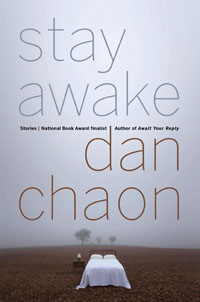 Chapter 16: Last year you told Publishers Weekly that this collection is the result of “playing with horror forms.” Are there other forms you like to play with in your work?
Chapter 16: Last year you told Publishers Weekly that this collection is the result of “playing with horror forms.” Are there other forms you like to play with in your work?
Chaon: I’m interested in fantasy, though I don’t have any immediate plans to work in that mode; and I’m very interested in the thriller form—which I dabbled with in my novel Await Your Reply, and which I may return to in my next novel, which is a sort of paranoid conspiracy adventure novel.
Chapter 16: You do a great job of increasing tension as the stories move forward. Is this a skill that comes to you more or less naturally, or is it something you’ve struggled to develop?
Chaon: Plot and tension don’t come easily for me—it’s something I’ve deliberately worked on and practiced.
Chapter 16: There are a lot of deaths in this collection, but the vast majority of them take place off-stage. Can you talk a little about your decision not to dramatize the violence?
Chaon: I guess I was most interested in writing about the aftermath of trauma and violence, rather than about the thing itself. I’m interested in how grief and regret play out over time, and how they might change the shapes that peoples’ lives take.
Chapter 16: Stay Awake is full of unanswered questions—what some people might call “loose ends.” In “I Wake Up,” for example, Cassie keeps calling Rob and talking to him about their mother, who killed two of their siblings. We’re led to believe that Cassie isn’t who she says she is. In fact, part of what pulls us through the story is the expectation that we will find out the truth of the matter, but we never do. I admire the daring here, and I think the collection is better off for it: the unanswered questions add breadth and mystery to the story. But I can’t seem to explain just how you pulled it off. How do you know which questions to answer and which to leave open?
Chaon: To me, a story has to take a character through a certain cycle of change, but we might only see one step in a journey, rather than the full transformation. I started out writing “I Wake Up” with the idea that it was going to be a novel. But once I got Robbie to a certain moment, I realized that I was more interested in leaving him changed but also still in the midst of things. Sometimes, for me, leaving things mysterious is more interesting than wrapping it all up. I like the idea that in the end Robbie has been awakened out of the kind of sleepwalker life he’d been living, but that he awakes to find everything unsettled and full of secrets. I think that’s what most epiphanies are—a recognition of the world’s mystery, rather an explanation.
Adam Prince a graduate of the Ph.D. program in creative writing at the University of Tennessee in Knoxville and the current Tickner Fellow at the Gilman School in Baltimore, is the author of The Beautiful Wishes of Ugly Men.
Dan Chaon will give a reading on October 18 at Vanderbilt University in Nashville as part of the Gertrude and Harold Vanderbilt Visiting Writers Series. The event, which is free and open to the public, will take place at 7 p.m. in Buttrick 101.


